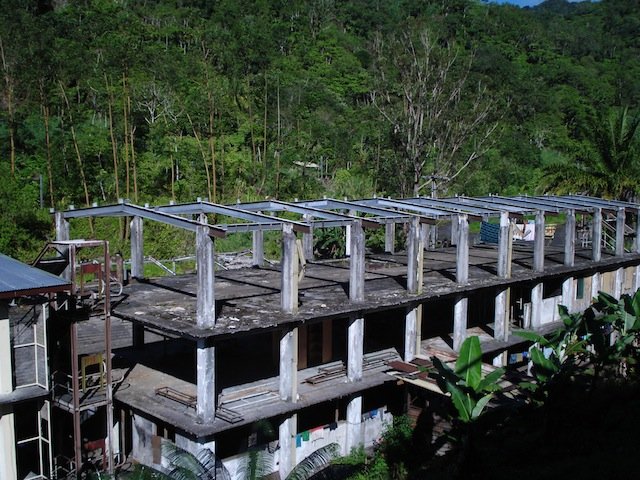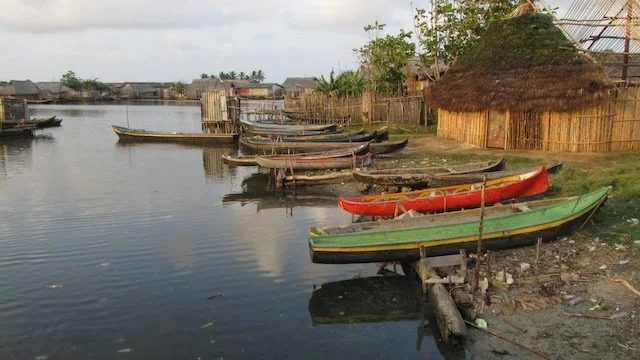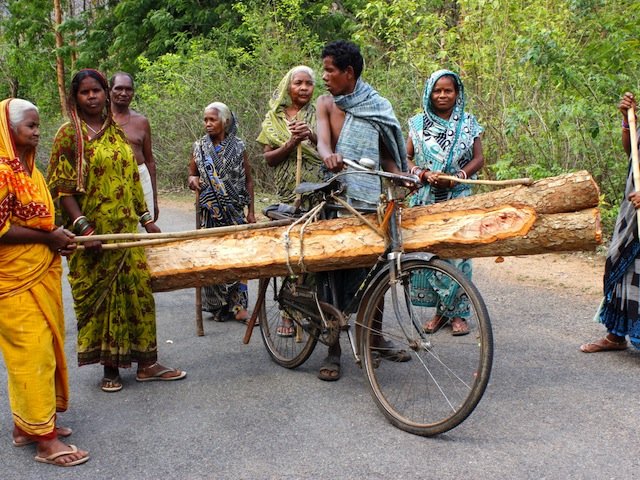International Rights of Nature Tribunal Constituted in Paris
Communities and organizations from all over the world took the initiative by formally establishing the International Tribunal for the Rights of Nature
African Women Unite Against Destructive Resource Extraction
A declaration issued by the WoMin African Gender and Extractives Alliance.
Declaration of the Fifth Congress of Biological Diversity
In Maracaibo, July 21-26, 2014, at the Bolivarian University of Venezuela, the following declaration was developed by the Fifth Congress of Biological Diversity.
Trueke in the Bronx!
The goal — in the capital of capitalism — to isolate the dollar for a single day. To bring together people to exchange products, services, food, and knowledge, without the use of money. To prefigure a diverse and complex human community, a free association of producers and consumers (“prosumidores” is the term they use in Venezuela). Bring books, clothes, posters, tools, art, etc: anything of value (use, exchange and/or intrinsic), and participate in an experiment to rediscover our humanity in the ancestral art of unalienated economics!
Connie Crothers on Music, Improvisation, and Revolution
Daro Behroozi and Joel Kovel interview the great pianist and theoretician Connie Crothers, who shares her connections between music, energy, consciousness, and struggles against capitalism and for a better world. The question at hand, among many others: does changes in music precede changes in consciousness, and from there, changes in social relations (revolution)? Tune in to find out.
Voices of Popular Struggle in Iraq
Ecosocialist Horizons Hour returns with Daro Behroozi as host, interviewing writer and activist Ali Issa whose recent book “Against All Odds: Voices of Popular Struggle in Iraq” compiles interviews with, and reports from, Iraqi feminists, labor organizers, environmentalists, and protest movement leaders.
The View from Mount Olympus
An interview with Mikhalis Styllas by Quincy Saul which originally appeared in Counterpunch.
Celebrating Indigenous Resistance in Mexico
Others Worlds are Here! A report back of Gizelxanath and Ben Barson from Mexico and a concert, party and fundraiser for Kol-lek-tive Snajtaleltik.
Farmers Fight Real Estate Developers for Kenya’s Most Prized Asset: Land
Vegetables grown in the lush soil of this quiet agricultural community in central Kenya’s fertile wetlands not only feed the farmers who tend the crops, but also make their way into the marketplaces of Nairobi, the country’s capital, some 150 km south.
Bougainville: Former War-Torn Territory Still Wary of Mining
From Arawa, once the capital city of Bougainville, an autonomous region in eastern Papua New Guinea in the southwest Pacific Ocean, a long, winding road leads high up into the Crown Prince Ranges in the centre of the island through impenetrable rainforest.
They Thought it was Stone, But it was Sand
Some thoughts on the fall of a regime, by Kanya D’Almeida, Colombo, January 19, 2015
Living the Indigenous Way, from the Jungles to the Mountains
In the course of human history many tens of thousands of communities have survived and thrived for hundreds, even thousands, of years. Scores of these largely self-sustaining traditional communities continue to this day in remote jungles, forests, mountains, deserts, and in the icy regions of the North.
Watch What Happens When Tribal Women Manage India’s Forests
Under the leadership of women like Pradhan, 850 villages in the Nayagarh district of Odisha state are collectively managing 100,000 hectares of forest land, with the result that 53 percent of the district’s land mass now has forest cover. This is more than double India’s national average of 21 percent forest cover.
From Slavery to Self Reliance: A Story of Dalit Women in South India
HuligeAmma, a Dalit woman in her mid-forties, bends over a sewing machine, carefully running the needle over the hem of a shirt. Sitting nearby is Roopa, her 22-year-old daughter, who reads an amusing message on her cell phone and laughs heartily.
The pair leads a simple yet contented life – they subsist on half a dollar a day, stitch their own clothes and participate in schemes to educate their community in the Bellary district of the Southwest Indian state of Karnataka.
But not so very long ago, both women were slaves. They have fought an exhausting battle to get to where they are today, pushing against two evils that lurk in this mineral-rich state: the practice of sexual slavery in Hindu temples, and forced labour in the illegal mines that dot Bellary District, home to 25 percent of India’s iron ore reserves.




















